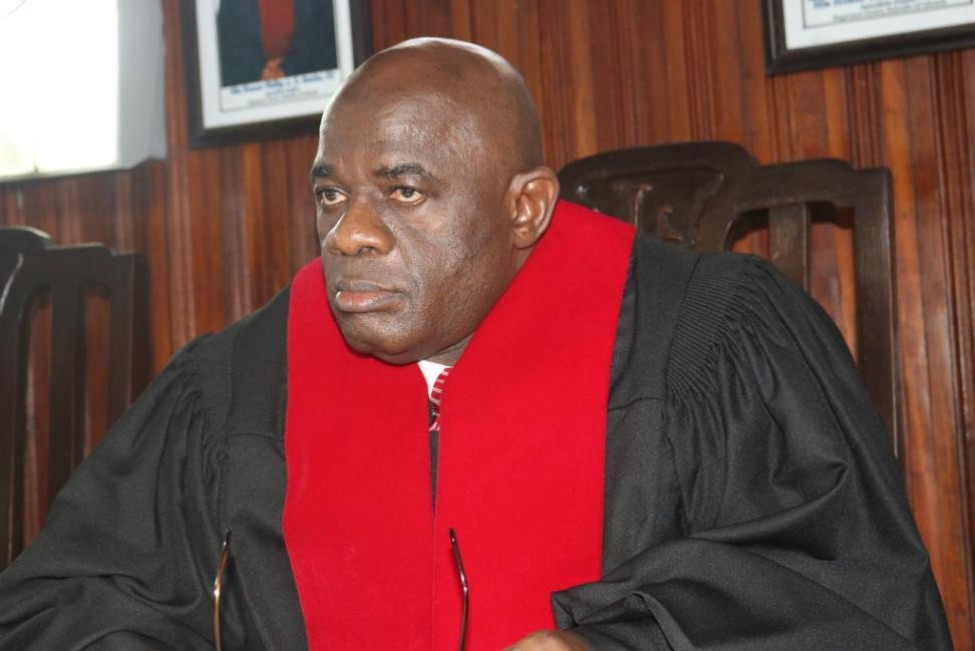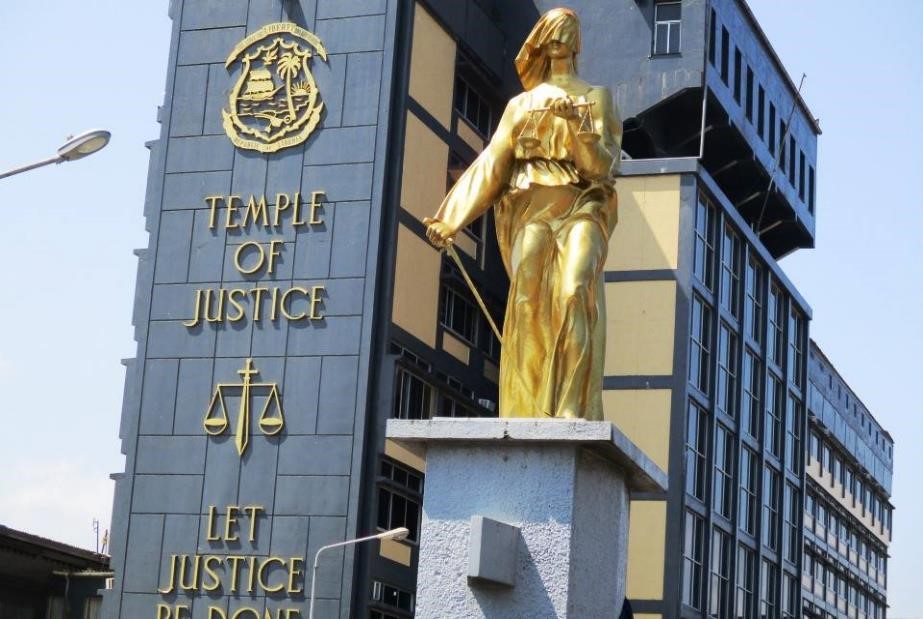MONROVIA, Montserrado – The much-anticipated impeachment proceeding for Associate Justice Kabineh Ja’neh suffered another delay on Thursday following a request by the defendant’s lawyer for Chief Justice Francis Korkpor to recuse himself from presiding over the case.
Korkpor told members of the Senate and parties to the case that the trial, which was scheduled to commence on Thursday, could not go ahead because there was a petition for his recusal.
“The impeachment trial will not begin today because there was a pending motion for me to recuse myself. We will have to resolve this first then that will determine if I will preside over the trail or not,†he announced.
In a 10-count petition, Cllr. Arthur Johnson, the lawyer representing the embattled associate justice, requested that the chief justice recuse himself from presiding over the impeachment proceedings in the interest of justice and fair play. Johnson justified the request because he said the chief justice and three other justices of the Supreme Court had dismissed an appeal in a case that is a subject of Ja’neh’s impeachment trial.
“That Article 90 (a) of the 1986 Constitution of the Republic of Liberia provides that no person whether elected or appointed to any public office shall engage in any other activity which shall be against public policy or constitute a conflict of interest. Accordingly, [the] respondent, having signed the judgment, which judgment is one of the grounds for the impeachment of [the] movant, is constitutionally prohibited to preside over the impeachment proceedings of movant,†the petition read.
“Movant submits that it is certainly [a] conflict of interest and against public policy for [the] respondent to sit on the impeachment proceedings of [the] movant, [the] respondent having acted and participated in a judgment, the outcome of which is one of the grounds for which [the] movant’s impeachment and removal from office is being sought.â€
Recently, the Supreme Court ruled to allow the Senate to proceed with the impeachment trial of Ja’neh. Four members of the Senate had petitioned the Supreme Court to issue a stay order on the Senate’s proceedings, citing a violation of the constitution on the part of the Senate.
Lawyers representing the legal interest of the embattled justice had also petitioned the court for a writ of prohibition on the impeachment process, arguing that the legislature was proceeding wrongly. But the Supreme Court said its ruling was based on Article 43 of the Constitution, which gives the House of Representatives the sole authority to prepare a bill of impeachment while the Senate also reserves the power to solely conduct all impeachments trials.
In August, 49 members of the House of Representatives had voted to impeach Ja’neh, thus submitting the bill of impeachment to the Senate which has the sole responsibility to conduct the impeachment trial, over which the chief justice is to preside, according to the law.
The bill was initially introduced by two members of the Coalition for Democratic Change, Montserrado’s fifth and eighth district representatives, Thomas Fallah and Acarous Gray.
Gray and Fallah wrote in their petition that Ja’neh abused his power to prevent a now deceased businessman, Austin Clarke, from collecting a US$1 million judgment in a case of defamation against Ecobank. They cited another case where they say Ja’neh used his influence as a Supreme Court justice “to become both a player and a referee in a land dispute in which no lawyer dared take on him because he is an associate justice of the Supreme Court of Liberia and enjoys the luxurious trappings associated with such office and is hiding behind his office and status to sport with the rights of innocent Liberians.â€
In count nine of the amended bill of impeachment submitted to the Senate, the lawmakers stated that in cases where an appeal is subject to dismissal due to the gross negligence of an appellant’s lawyer, the Supreme Court has traditionally heard the case on its merits and punished the lawyer for his negligence, noting that such did not happen for the Madam Annie Yancy Constance’s appeal case, the according to them, the Associate Justice manipulated the Supreme Court and ensured that no exception was made for the active negligence of Cllr. Lawrence Yeakula, as has been customarily done in other cases, but that the appeal was dismissed and the respondent associate justice was allowed to keep such a valuable property, for which he had paid a small amount.
“And these honorable petitioners submitted that the injustice in this Constance case constitutes another gross breach of duty committed by the respondent associate justice, which is a subject of satirical publications in the Daily Observer Newspaper; and for which the respondent associate justice should be impeached and removed from office,†the amended bill provides.
Meanwhile, the chief justice has noted that the current impeachment has no precedent in the country’s judicial history.
“To the best of my recollection, no impeachment proceeding in our nation has taken on the form of a full-blown trial before the Senate. Maybe this one will,†he said.
He said there has been no precedence on which they can rely, but assured that the trial will be guided by the constitution and statutory laws of the land.
“As the presiding officer, I am committed to this. I shall be in full control of the proceeding. I shall pass on all relevant applications or questions raised during [the] trial. Both sides will be treated equally and fairly in keeping with the law and the parties will only speak through their respective counsels,†he also emphasized.
He said while the Senate is not a courtroom, they will ensure that the calm and serenity that prevail in courtrooms during trials prevail in the Senate also.
“I will insist on order and timeliness. We shall meet at 10:00 a.m. each trial day and continue the proceeding until adjourned by me. As I am in my judicial robe I direct that all lawyers representing the parties to this proceeding wear their judicial robes,†the chief justice added.
He said the hearing into the motion will be heard Monday, February 18, assuring both parties due process, which is a pillar of the justice system. He welcomed members of the public, including the media, to the hearing, adding that the trial is a public forum.
In his official opening statement, Senate Pro Tempore Albert Chie had stressed that the Senate was not a party to the case but was empowered by the constitution to listen to the evidence and make a decision to convict or acquit.
Chie reminded the parties that the Senate did not formulate the charges. Instead, he argued that it was the House of Representatives that prepared the indictment. He assured the public and interested parties that the Senate would give the accused a free and fair trial, but noted that impeachment trials of public officials all over the world are political matters and not only judicial in nature.
Featured photo courtesy of the Ministry of Justice



